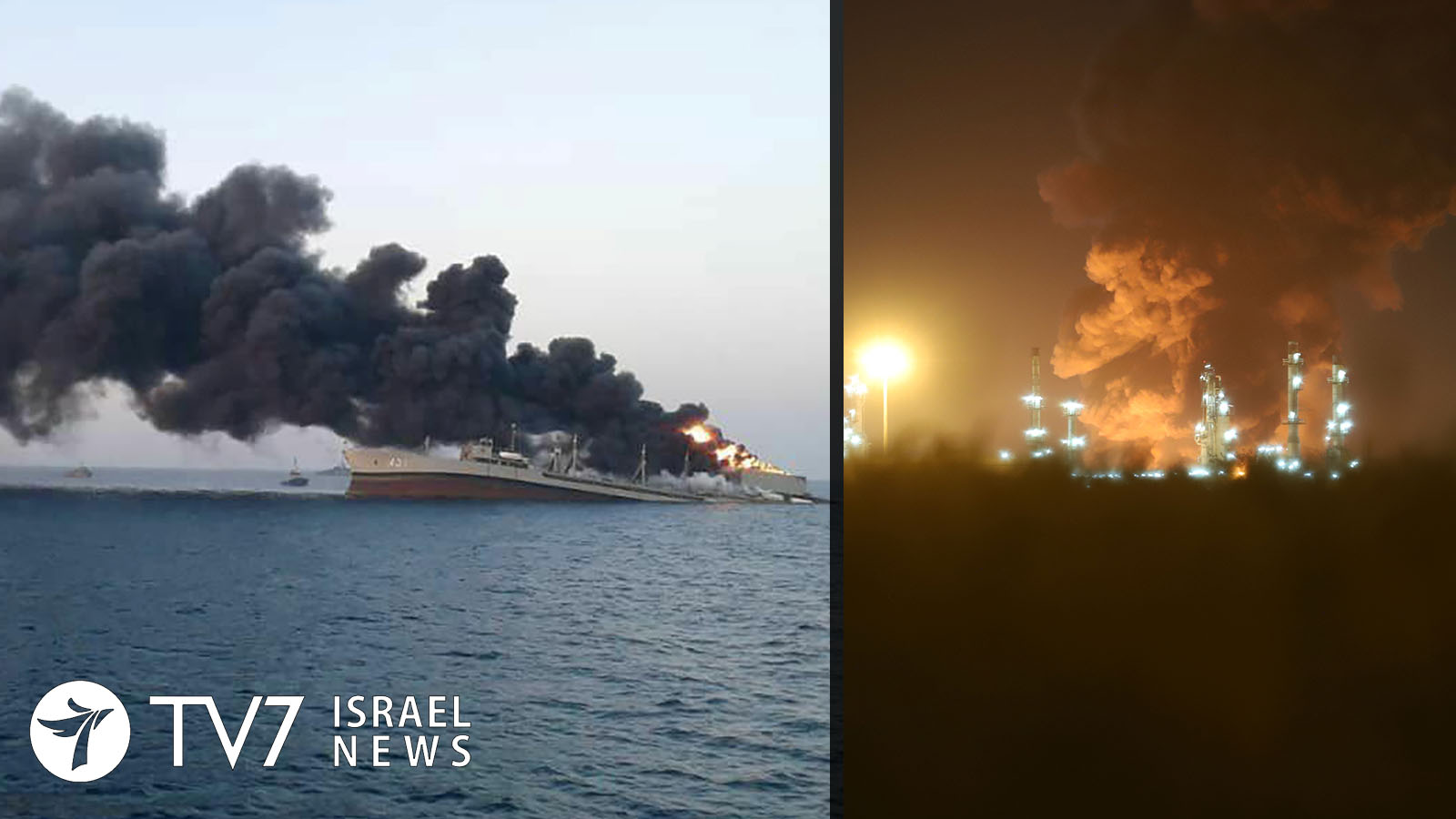A major blaze ignited at a refinery in the southern part of the Iranian capital on Wednesday, according to government media outlets.
“The fire has started at the liquefied gas line of Tehran’s Tondguyan refinery,” state TV cited a local official as saying.
Iran’s IRNA state news agency reported that firefighters were deployed to the area, as TV said thick smoke over the facility could be seen from different parts of Tehran.
There have been no reports of casualties.
The fire occurred just hours after Iran’s largest navy ship the Kharg burst into flames and sank in the Gulf of Oman.
No details were disclosed about the latest incident in a region of sensitive waterways, where arch-enemies Iran and Israel have accused one another of attacking the other’s vessels.
State TV reported that the Kharg fire broke out during a training mission around 2:25 AM Wednesday (21:55 GMT) near the Iranian port of Jask.
Rescue operations for the Kharg went on for hours, said state TV said, to safely evacuate all crew members, but “All efforts to save the vessel were unsuccessful and it sank,” the semi-official Fars news agency reported.
The Gulf of Oman connects to the Strait of Hormuz, through which about a fifth of the world’s oil passes.
In April, Iran said its Saviz naval vessel had been targeted in the Red Sea, after the media reported it had been attacked with limpet mines.
This, after Jerusalem and Tehran blamed each other for a series of reported attacks on cargo ships since late February.
An Israeli-owned ship in the Arabian Sea was reportedly targeted in what appeared to be an Iranian attack on 25 March – in the second such incident almost exactly one month apart. Even though it sustained damage, the source said the vessel was able to continue its voyage between Tanzania and India after the attack.
The March incident followed an explosion aboard the Israeli-owned MV Helios Ray vehicle-carrier in the Gulf of Oman overnight between 25-26 February, in an attack Israeli Prime Minister Benjamin Netanyahu accused Iran of perpetrating.
Officials in Israel and the United States said limpet mines used to target the ship ripped holes in both sides of its hull above the water line.
Iranian Foreign Ministry Spokesman Saeed Khatibzadeh denied any involvement by his country in the attack on the Israeli ship, saying at the time, “We strongly reject this accusation.”
The Ayatollah regime in Tehran alleged that Israel is highly likely to have been behind an attack on the Iranian Shahr e Kord container ship in the Mediterranean the first week of March.
Iran has refused to recognize Israel since its Islamic Revolution in 1979 that toppled the United States-backed Shah. Israel sees Iran’s nuclear program as a threat to its existence.
The shipping incidents have occurred since US President Joe Biden took office in January, pledging to rejoin Iran’s 2015 nuclear containment deal with six world powers – abandoned by his predecessor Donald Trump in a move welcomed by Israel – if Tehran returns to full compliance with the accord.
There have been ongoing talks in Vienna to revive deal, formally called the Joint Comprehensive Plan of Action (JCPOA).
Meanwhile in a separate incident, 2 Iranian pilots were on Tuesday when their F-5 fighter jet experienced what the state IRIB broadcaster called ‘a technical fault’ before take-off in southwestern Iran.
No further details were provided other than to note that the accident occurred at an air base near the city of Dezful.
The age of the plane is unknown, but it is interesting to note that the Iranian Air Force still operates scores of planes bought from the United States prior to the 1979 Islamic Revolution.
